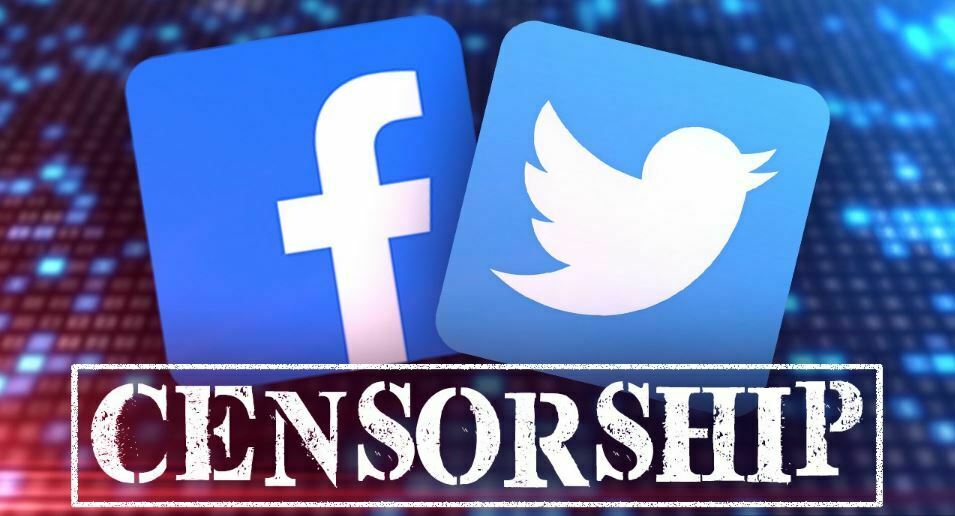
Is Big Tech Censorship Legal?

Over and over, we hear that companies such as Facebook, Google and Twitter, who are creating the problem of big tech censorship, can limit speech on their social media platforms because they are private businesses. It is not a violation of the constitutional right of free speech, they say.
Without doing legal research, I assume that somewhere along the way our federal courts – maybe the Supreme Court – has made that judgment. But is it right? It would not be the first time that the high courts have made bad decisions regarding constitutional protections.
Think Dred Scott.
We all should know that none of the inalienable rights articulated in the Constitution are absolute. We do not have a legal right to slander another person or to incite a riot. Or to cry “fire” in a crowded theater, as Justice Oliver Wendell Holmes put it.
Those restrictions are not censorship. We are not absolutely or physically barred for slandering, inciting a riot or crying “fire” in a crowded theater. It is just that we will suffer the after-the-fact consequences. After-the-fact is the key element. That is a far different approach than PRE-EMPTIVE censorship as the tech companies have commenced doing.
They are also not restricting speech within the limits of the law. They are censoring speech with which they do not agree – and speech they determine MIGHT be said. We do not indict a person because they MIGHT slander someone. The constitutional protection is against the act – not some arbitrary belief that such an act … statement … might occur.
The pre-emptive ban by social media is dangerous. It is the slippery slope to censoring free speech over political or philosophical disagreement. It should be the courts to determine when a person has legally abused the right of free speech – not tech companies.
Think of it this way. Tomorrow, I could go out on a street corner and try to incite a riot. I would be arrested and prosecuted – and a court-of-law would finally determine if I had tried to incite a riot or not. But, I would not have police at my door preventing me from going outside in their belief that I would incite a riot.
In our politically correct world, we seemed to have evolved to a point where even offensive speech in the opinion of one person is grounds to take away a wide range of speech rights – especially offensive, insulting or vulgar speech. If we are not free to be rude and crude, we do not have free speech … period.
But what about the tech companies’ alleged right to censor my speech because they are private businesses?
That is not – and should not be – the constitutional standard. In fact, we do not exempt businesses from constitutional requirements in almost any industry except big tech censorship.
If a developer has built an apartment building with 100 units, for example, he or she cannot discriminate against potential tenants on the basis of race, gender, sexual preference or even political affiliation. Private clubs may not discriminate even though they are private businesses. If you run a restaurant, you cannot discriminate against Blacks or Muslims in terms of jobs and even access.
The entire brutal reign of the Democratic Party over the former Confederate states for 100 years was overturned because the Supreme Court determined that private businesses cannot keep Black folks from sitting at the counter in a diner.
Why are tech companies exempt?
It would seem that Immunity from lawsuits should prevent tech companies from restricting or censoring any language. The reason these social platforms are exempt from libel for things said by their clientele on their site is so that those engaging in online chat CAN be totally free to say whatever they like. And if they slander or incite violence, then the law deals with them directly.
If these companies take on the role of censors, then they should not have any shield against liability. This is because they are then DIRECTLY RESPONSIBLE for what does and does not appear online. They should be subject to lawsuits for what appears on their sites AND also for what they refuse to allow on their sites.
If they have immunity and allow someone to use their site to provoke violence, that is their decision. They should be held culpable. If, conversely, they have immunity and were to block my site because they do not like the conservative opinions I render, then I should have the option of suing them – and let the courts decided if their censorship violated my Constitutional right of free speech or not.
What we cannot allow is the type of big tech censorship where these companies capriciously decide what we can and cannot say. And then insulate them from the consequences of their actions. We cannot have them determining our constitutional rights – and then be immune from accountability under the law.
So, there ‘tis.




























ROFL. That ass-think DANG-er is still sore - he shows it here today.
Oh you used Wiki as a source, haha. A source that anybody can log in and edit. But the claim…
What 500 dead babies? Your numbers lack evidence. Present some. Putin has done zero damage to the country. Demmies have…
Well if it was stupid to respond to, congratulations you have passed the stupidity test – since you responded. :)…
And you’re still here?